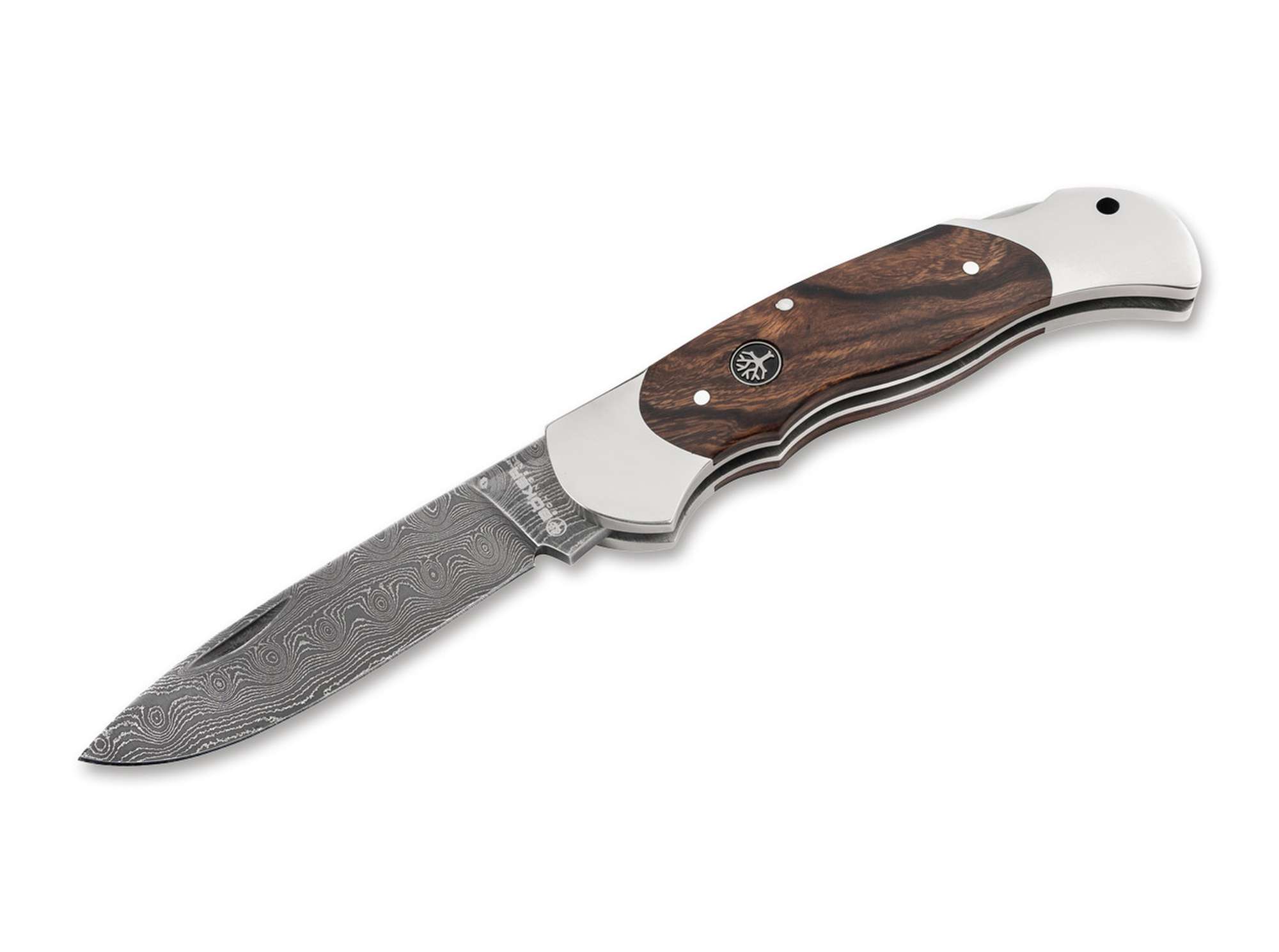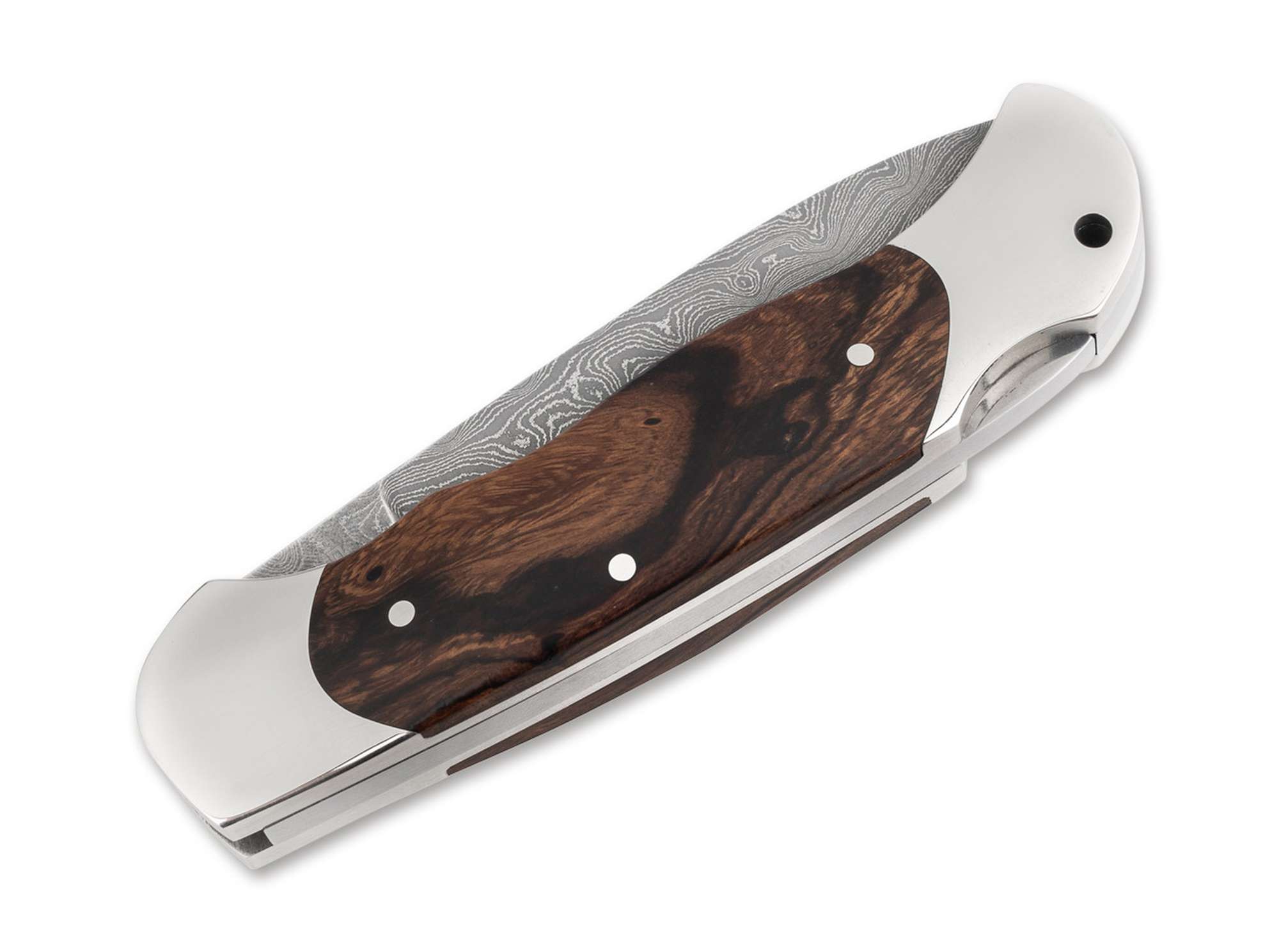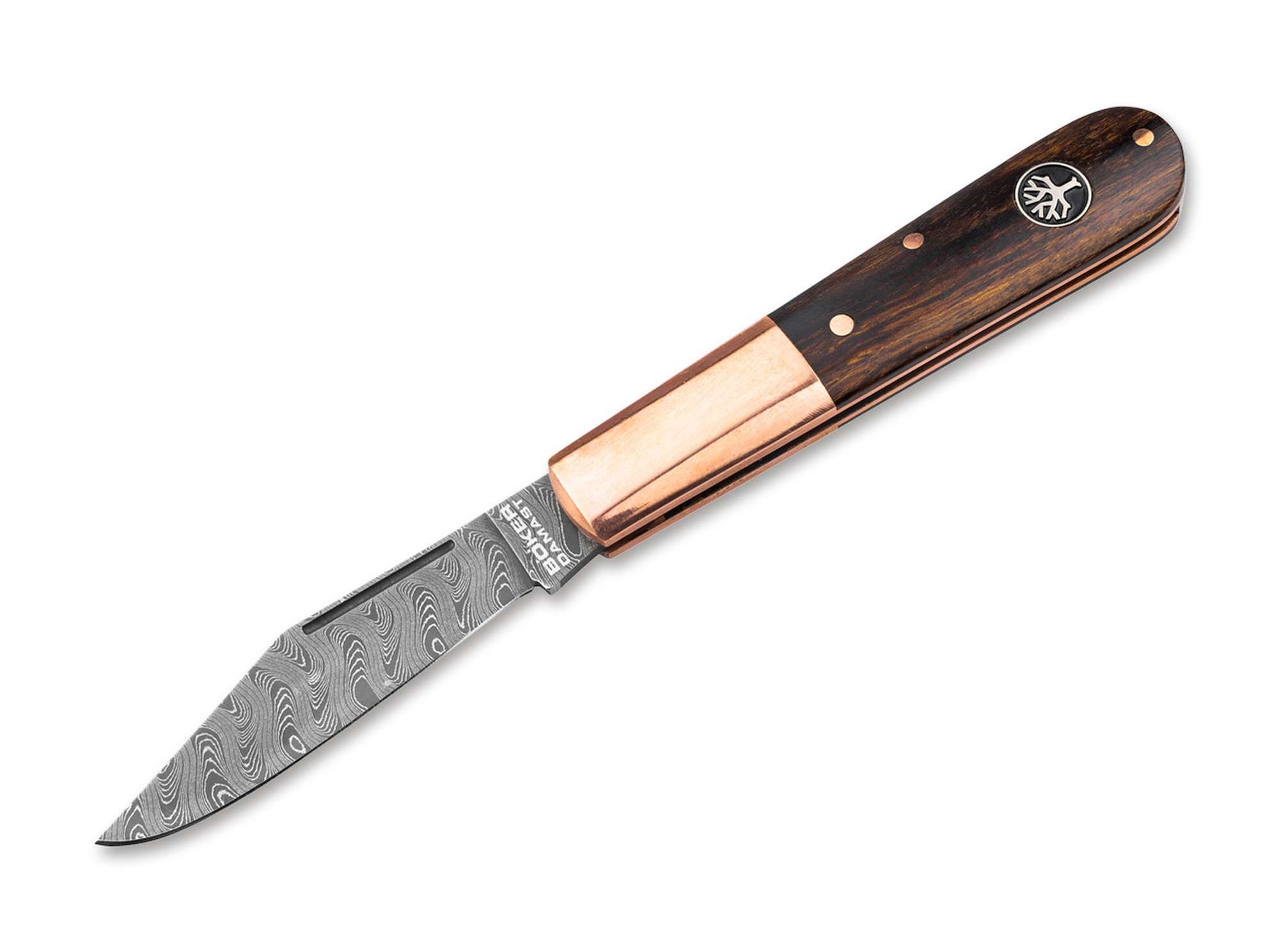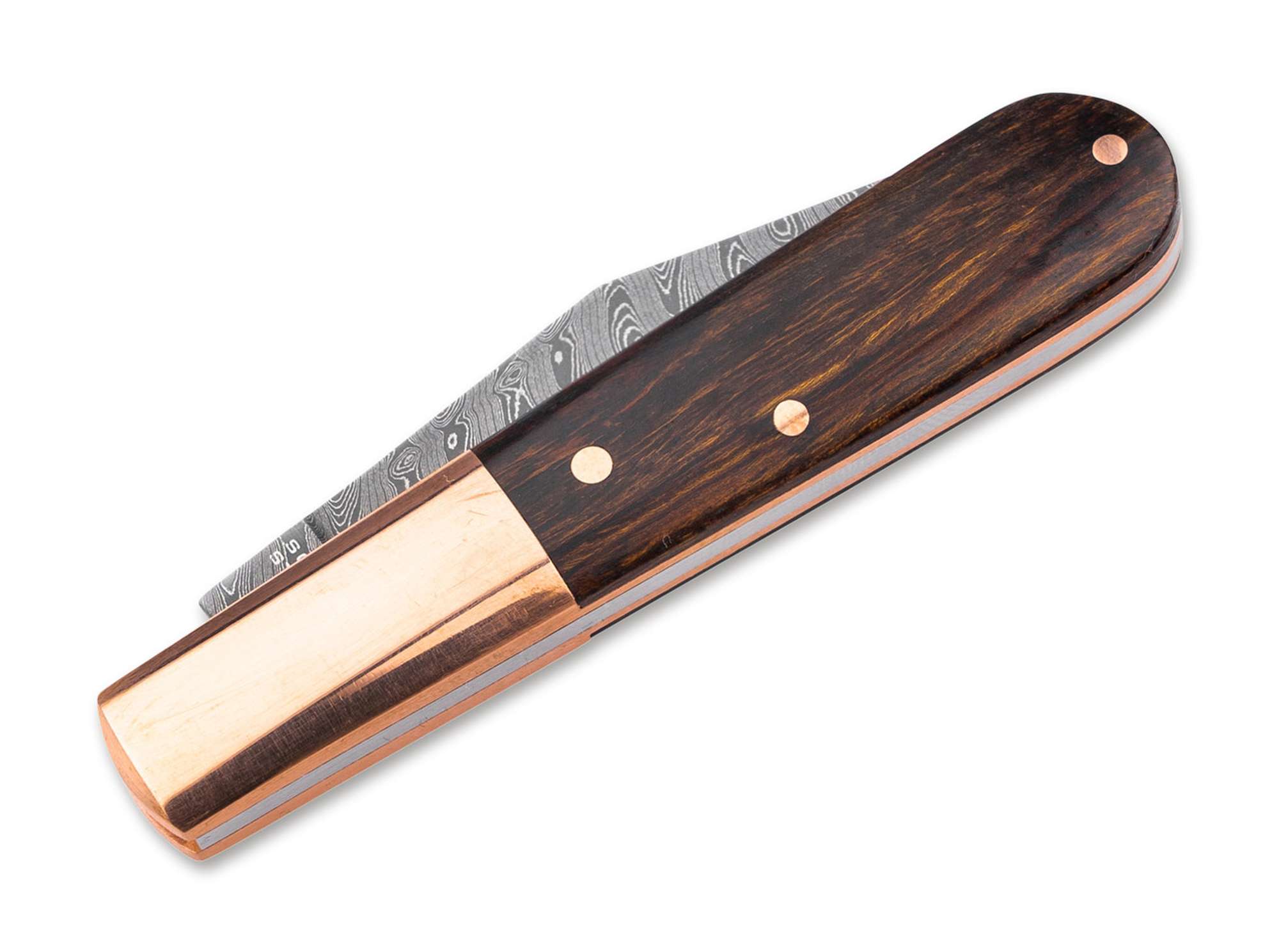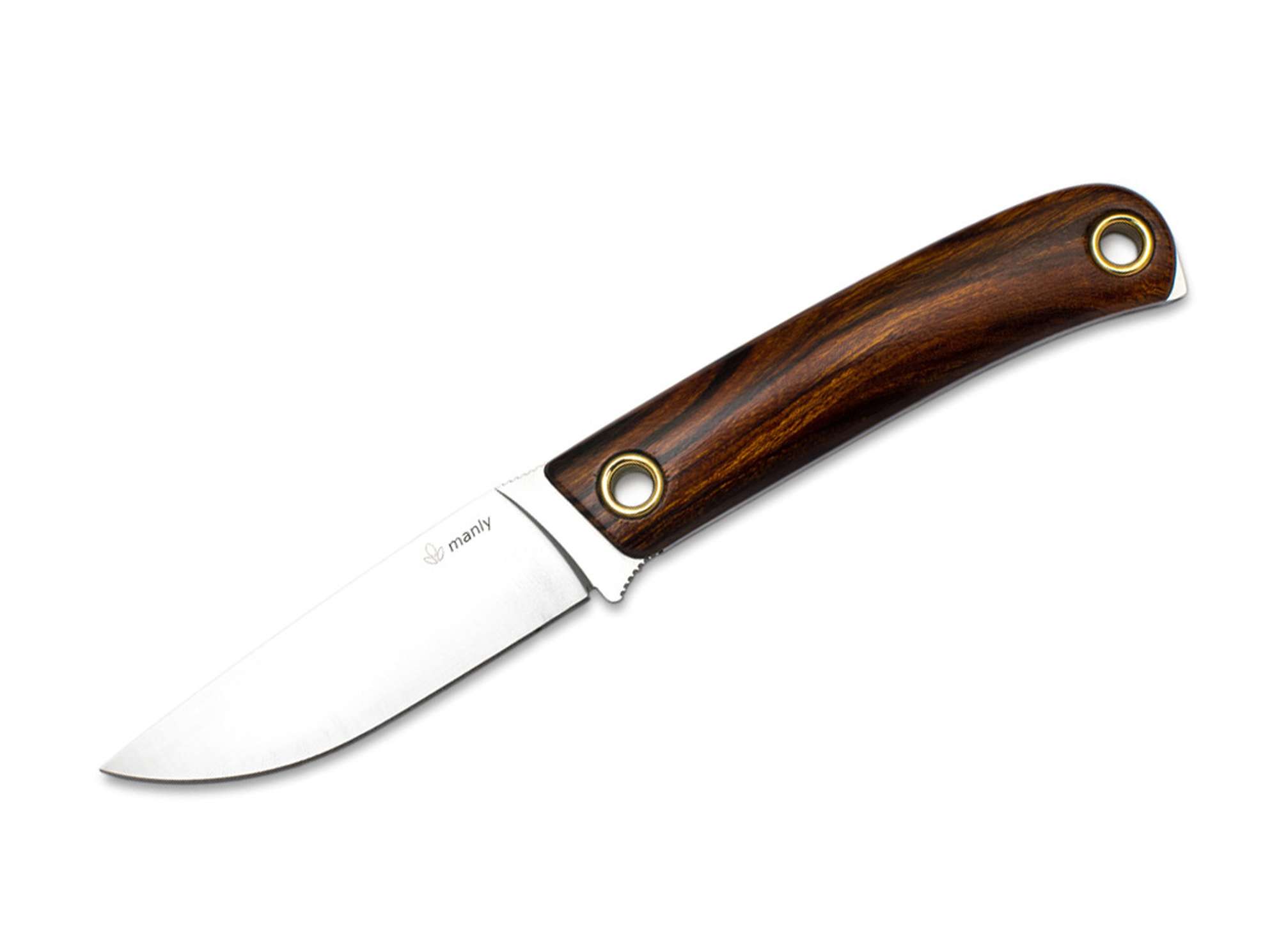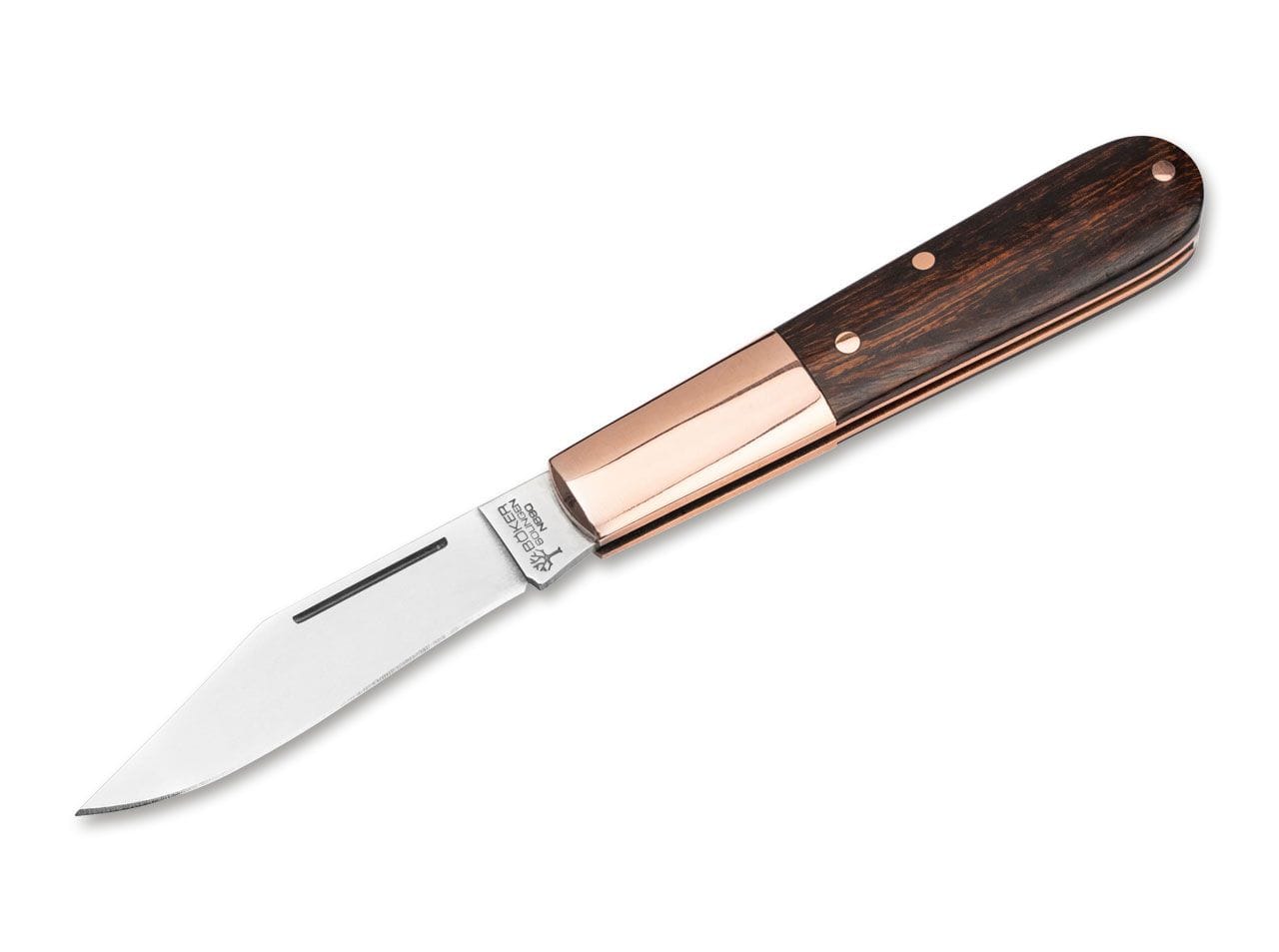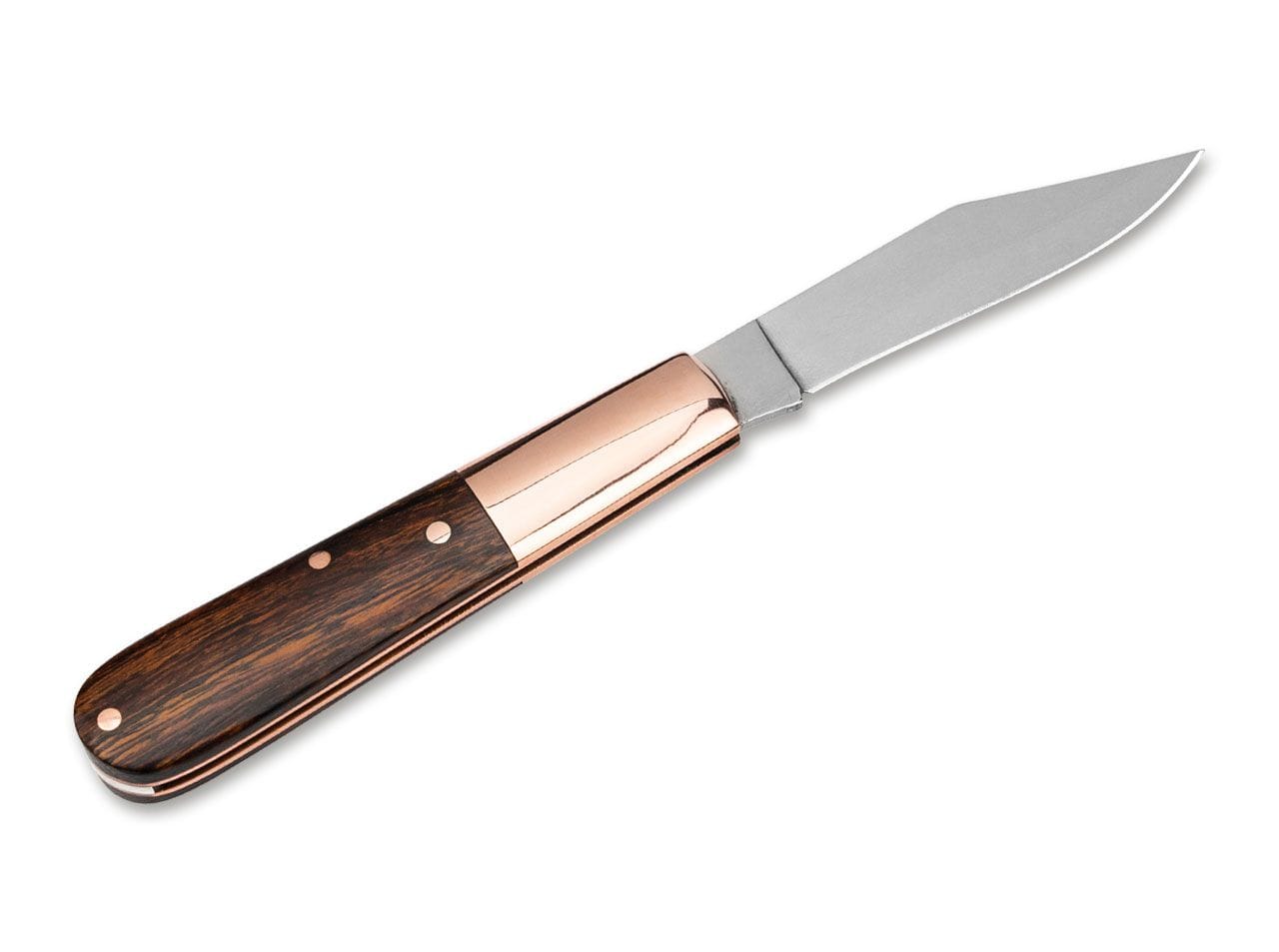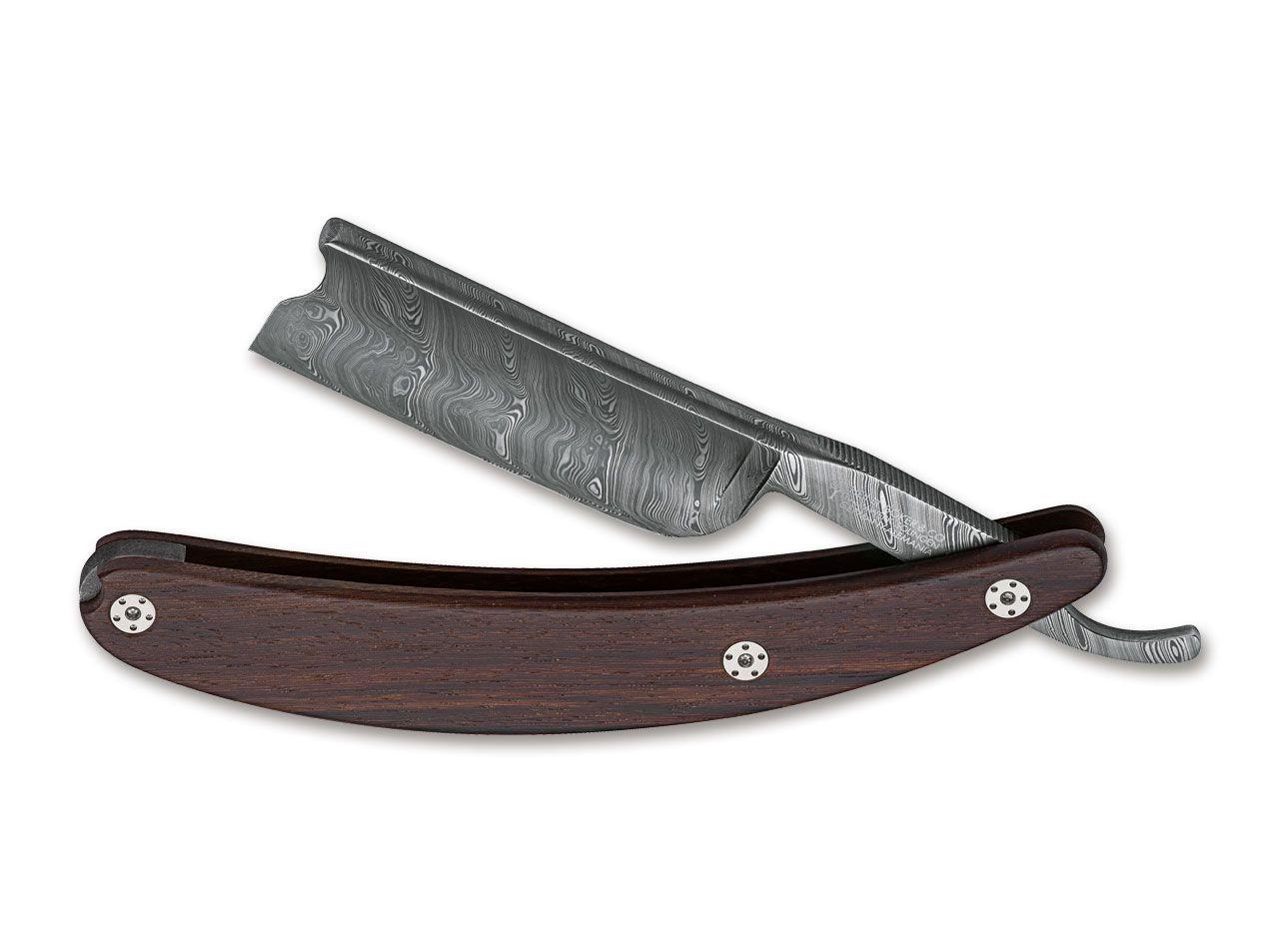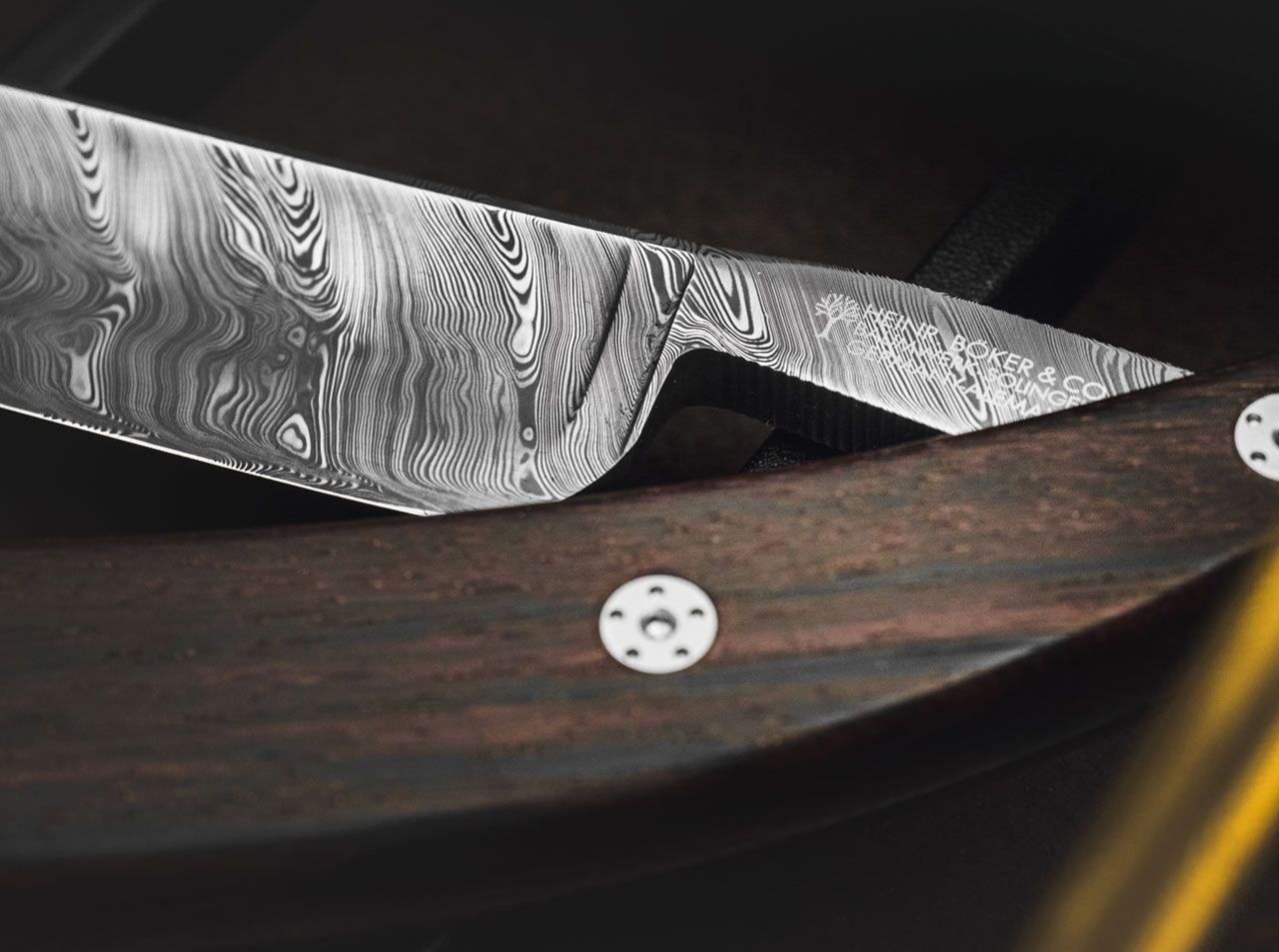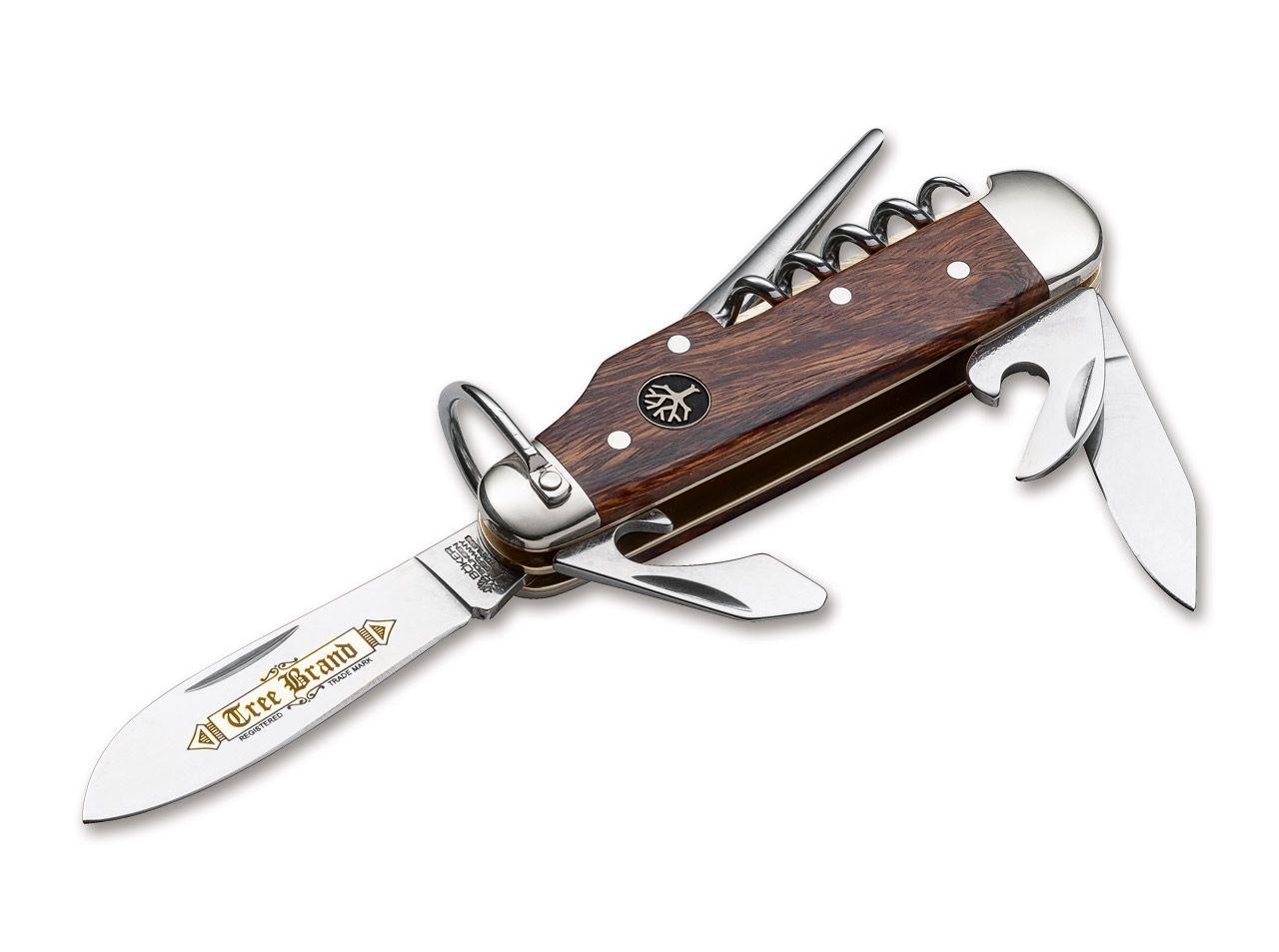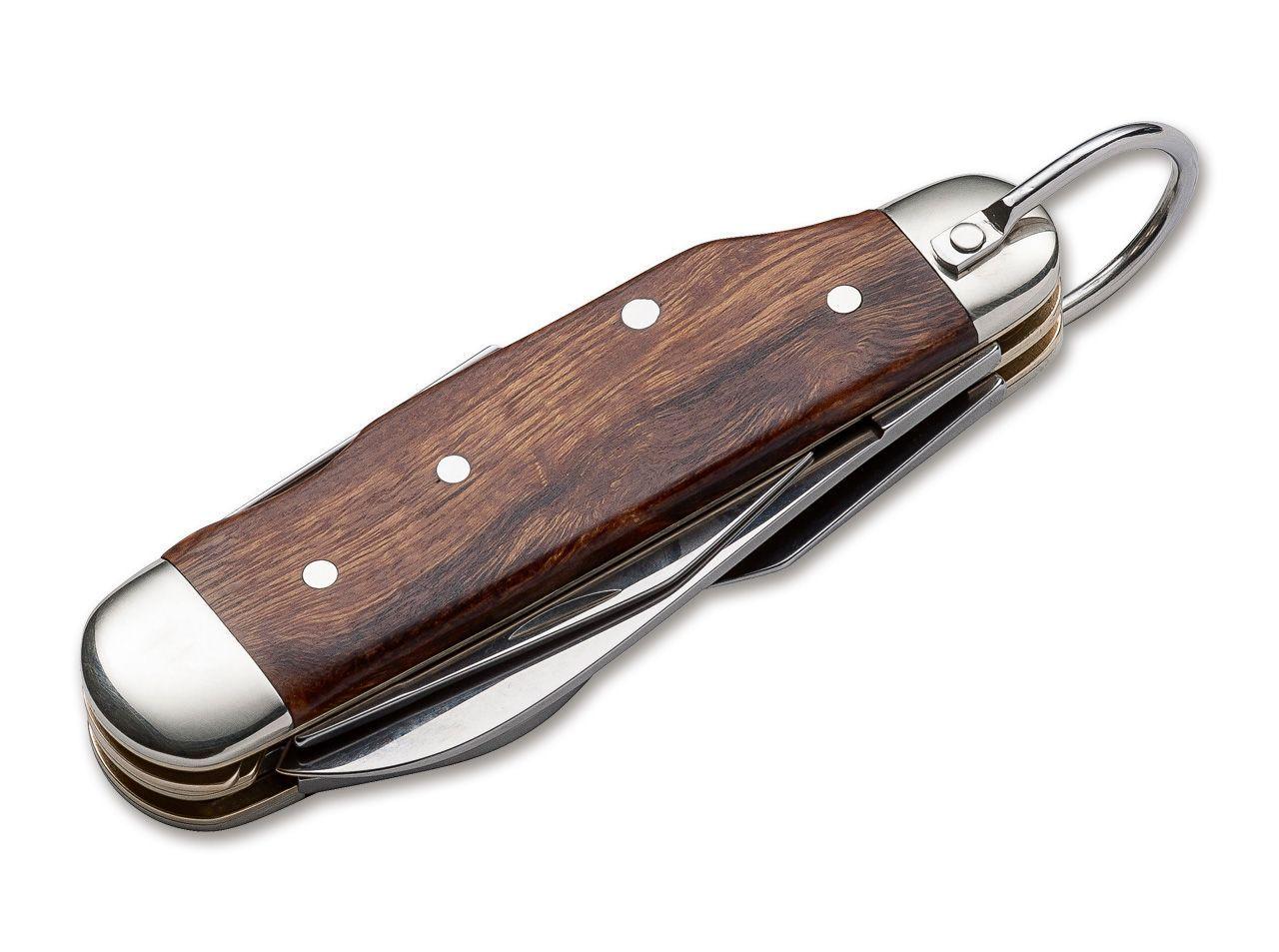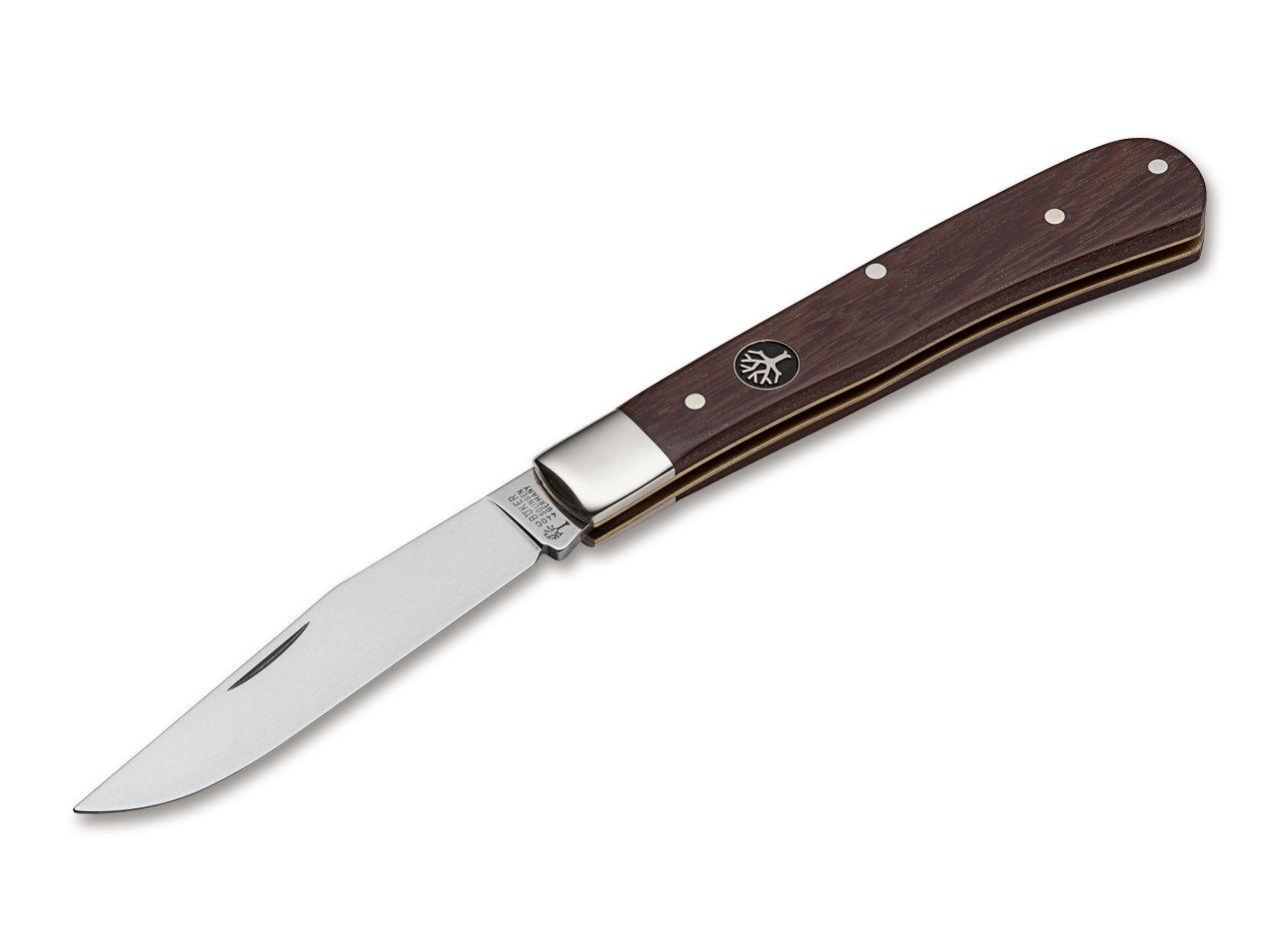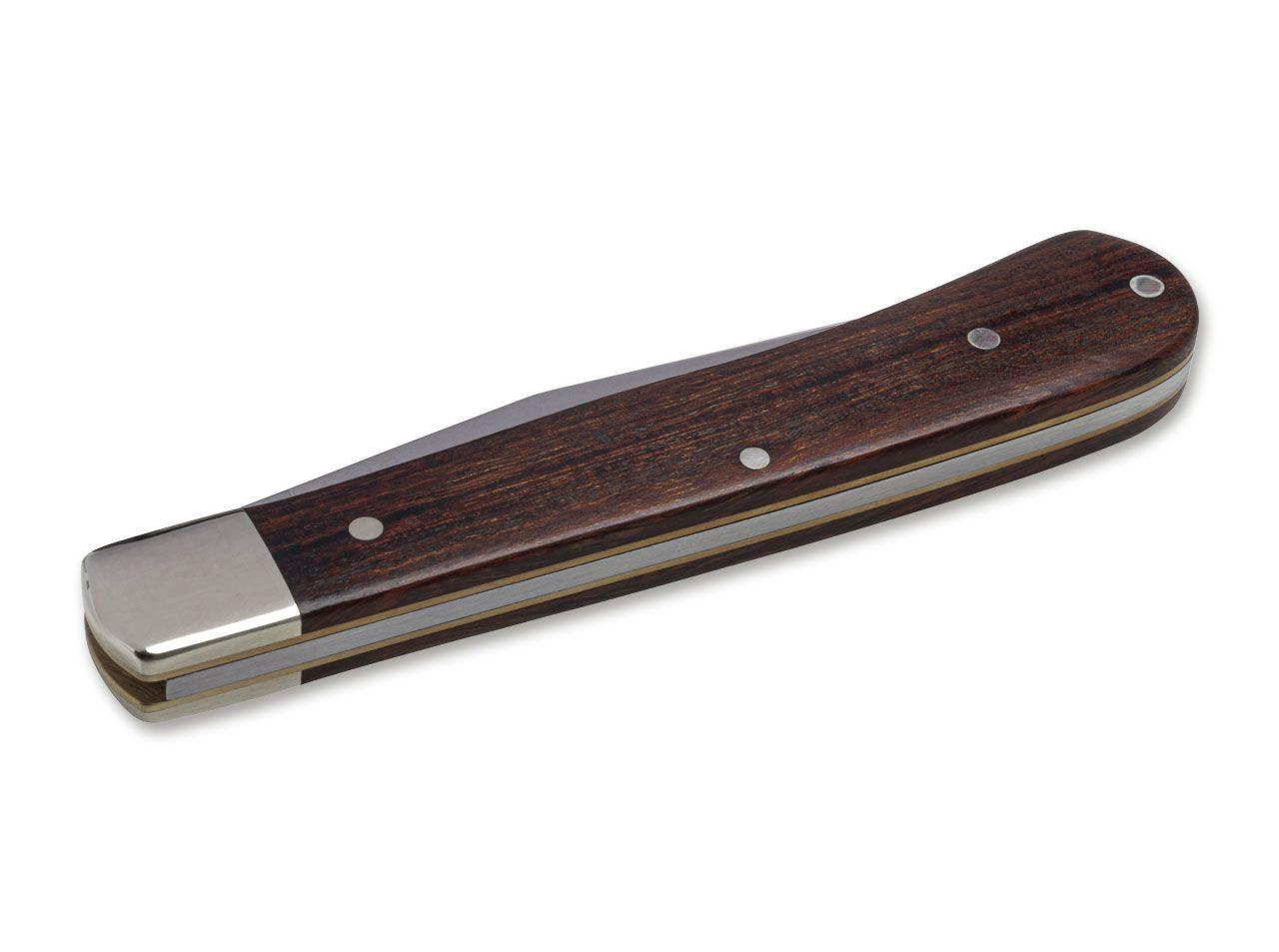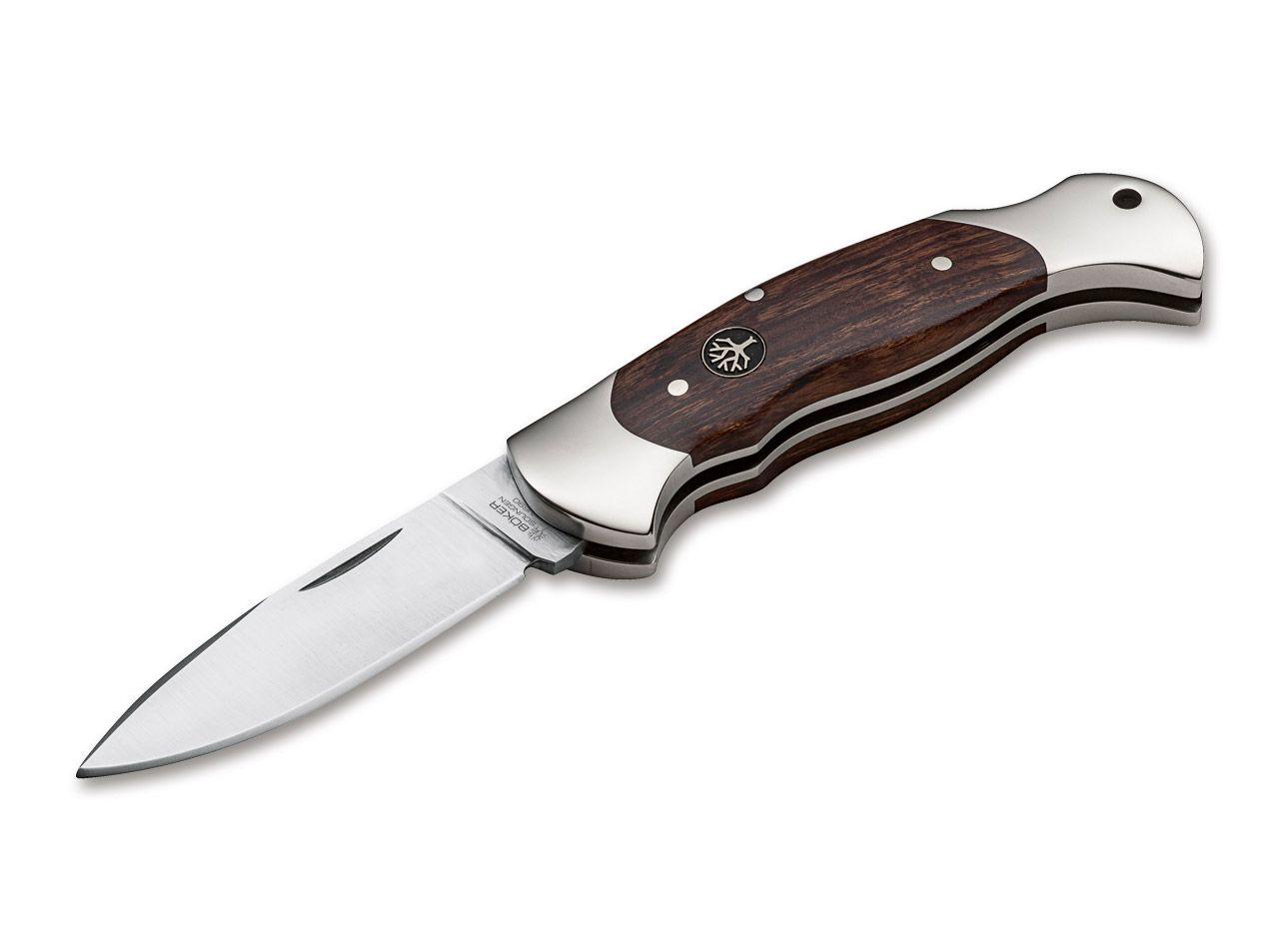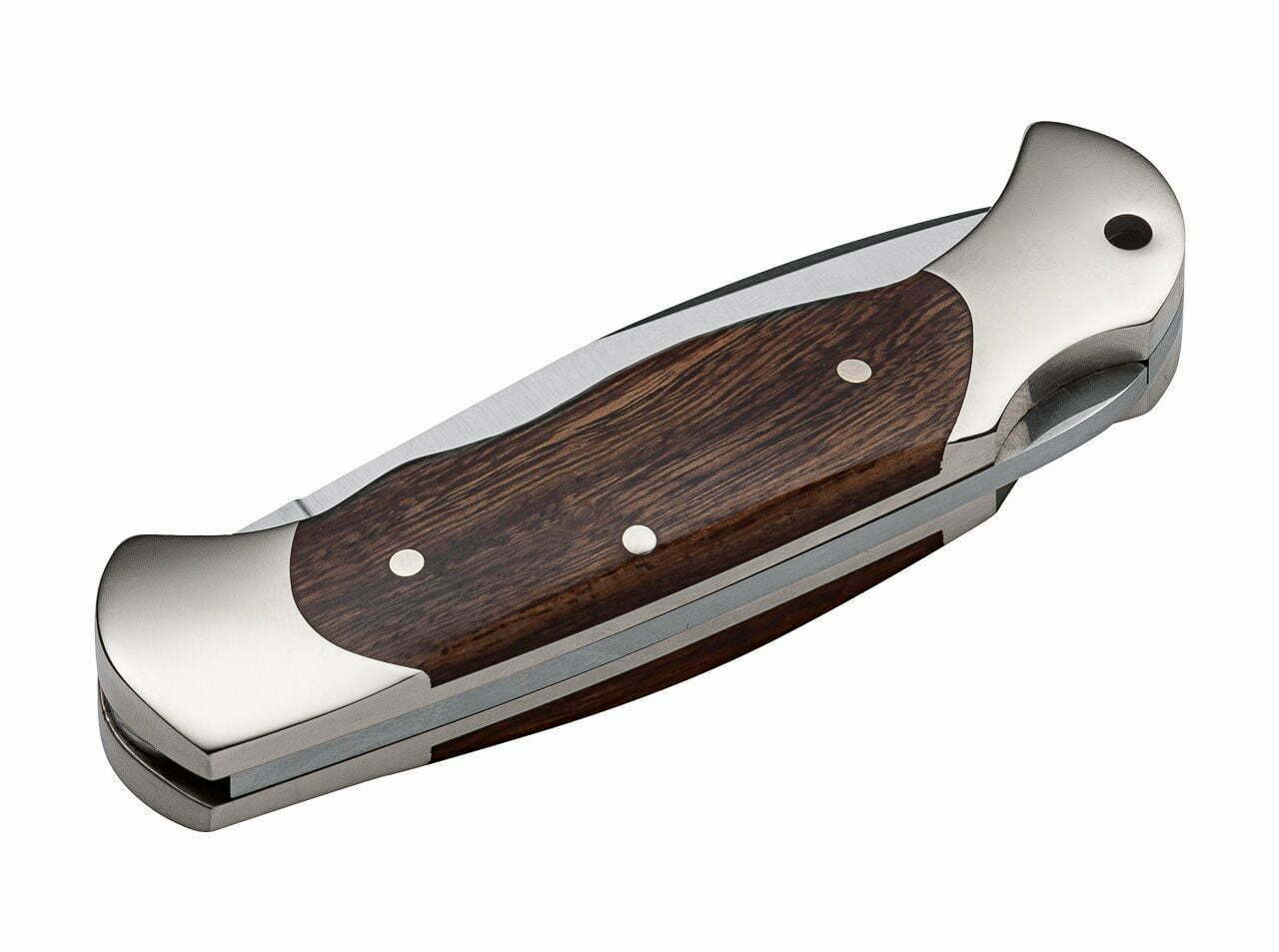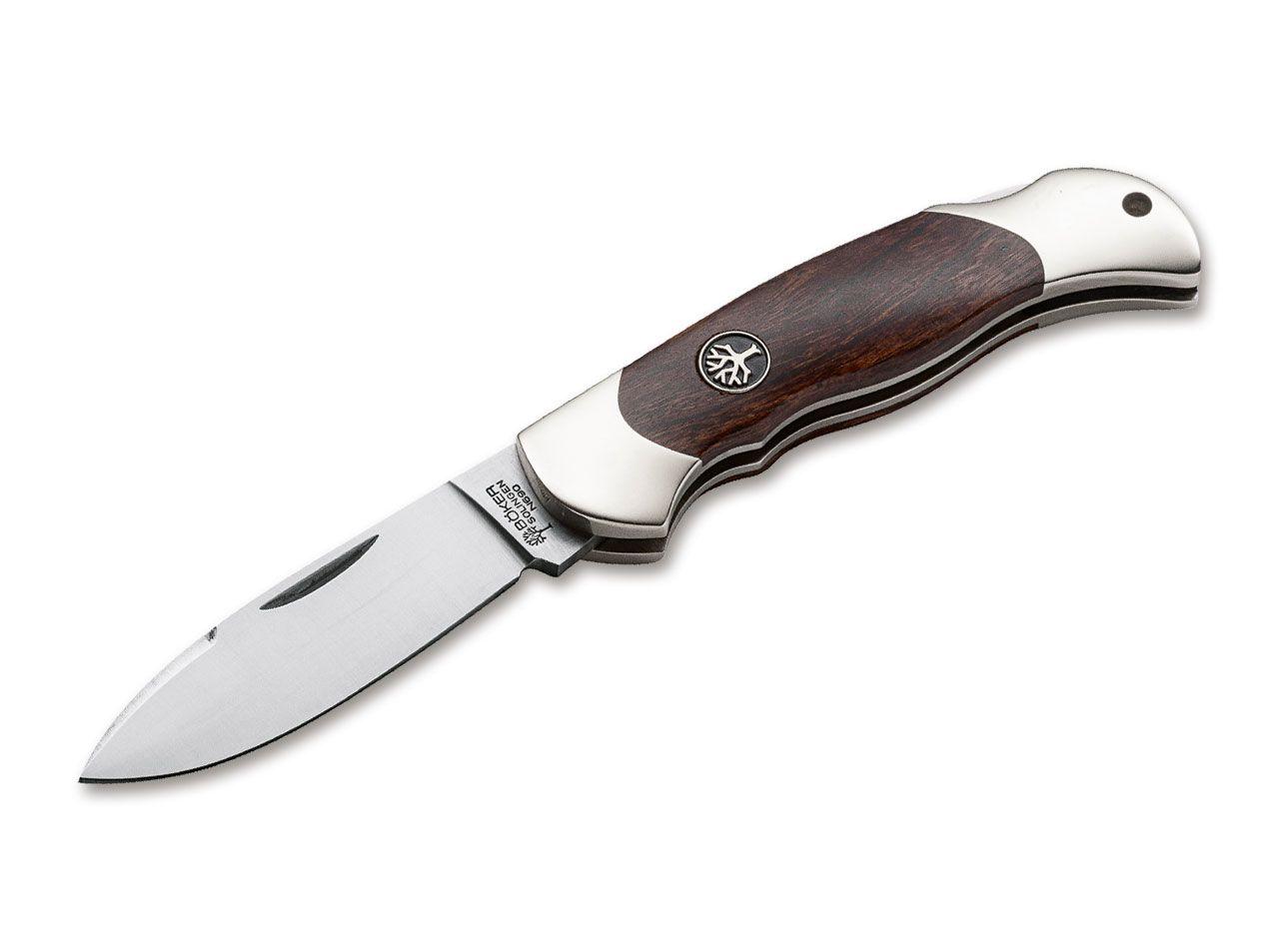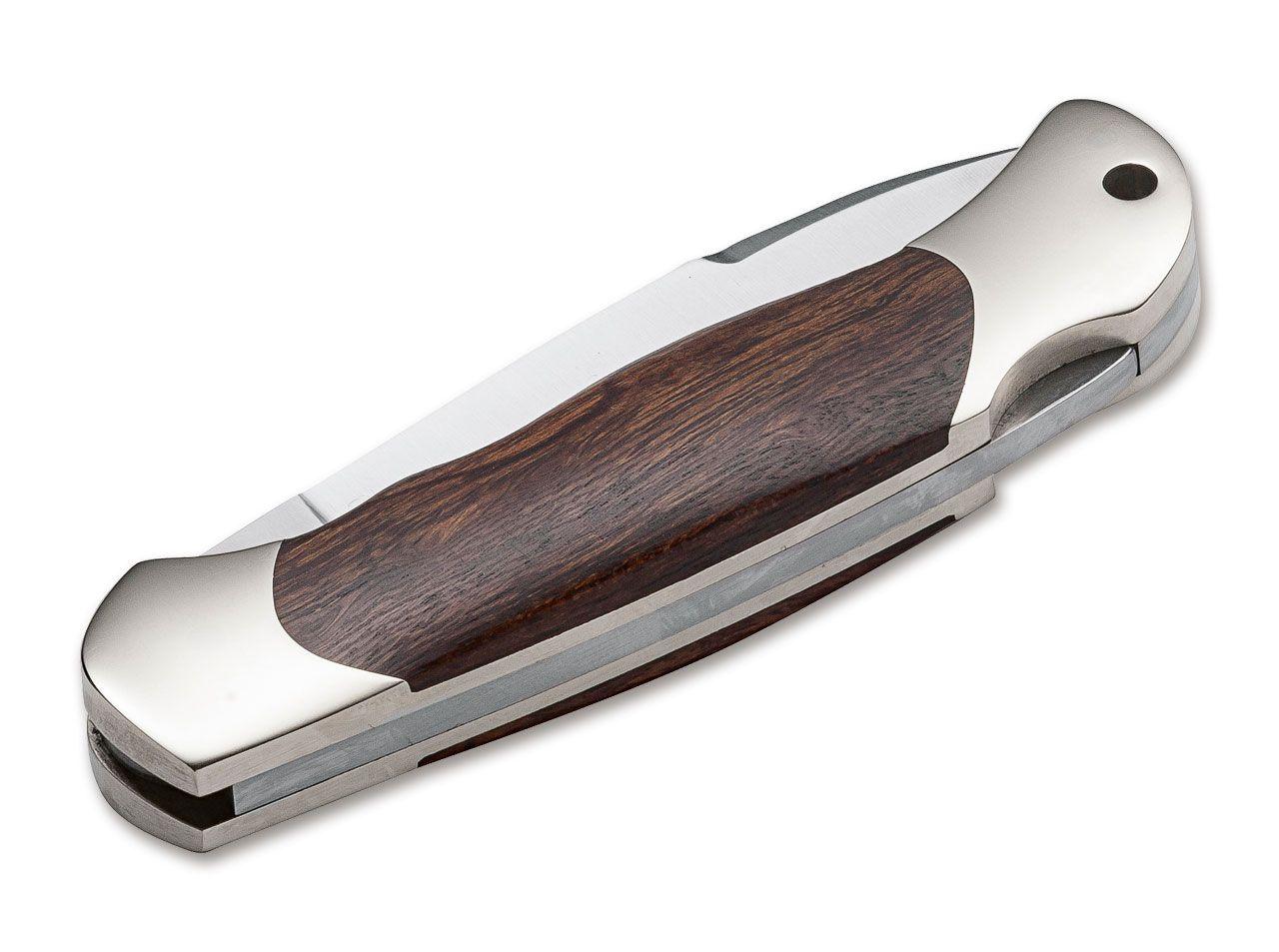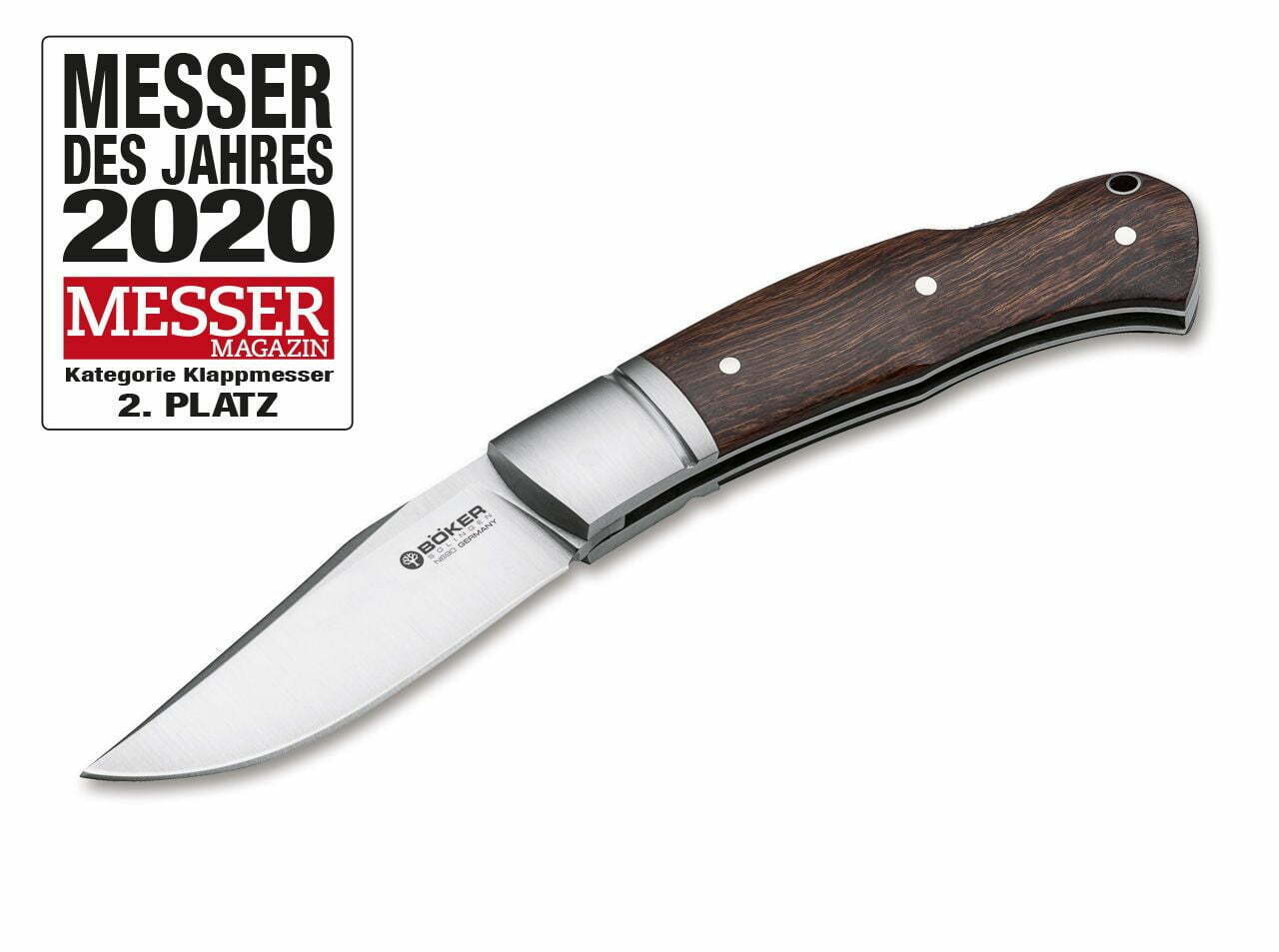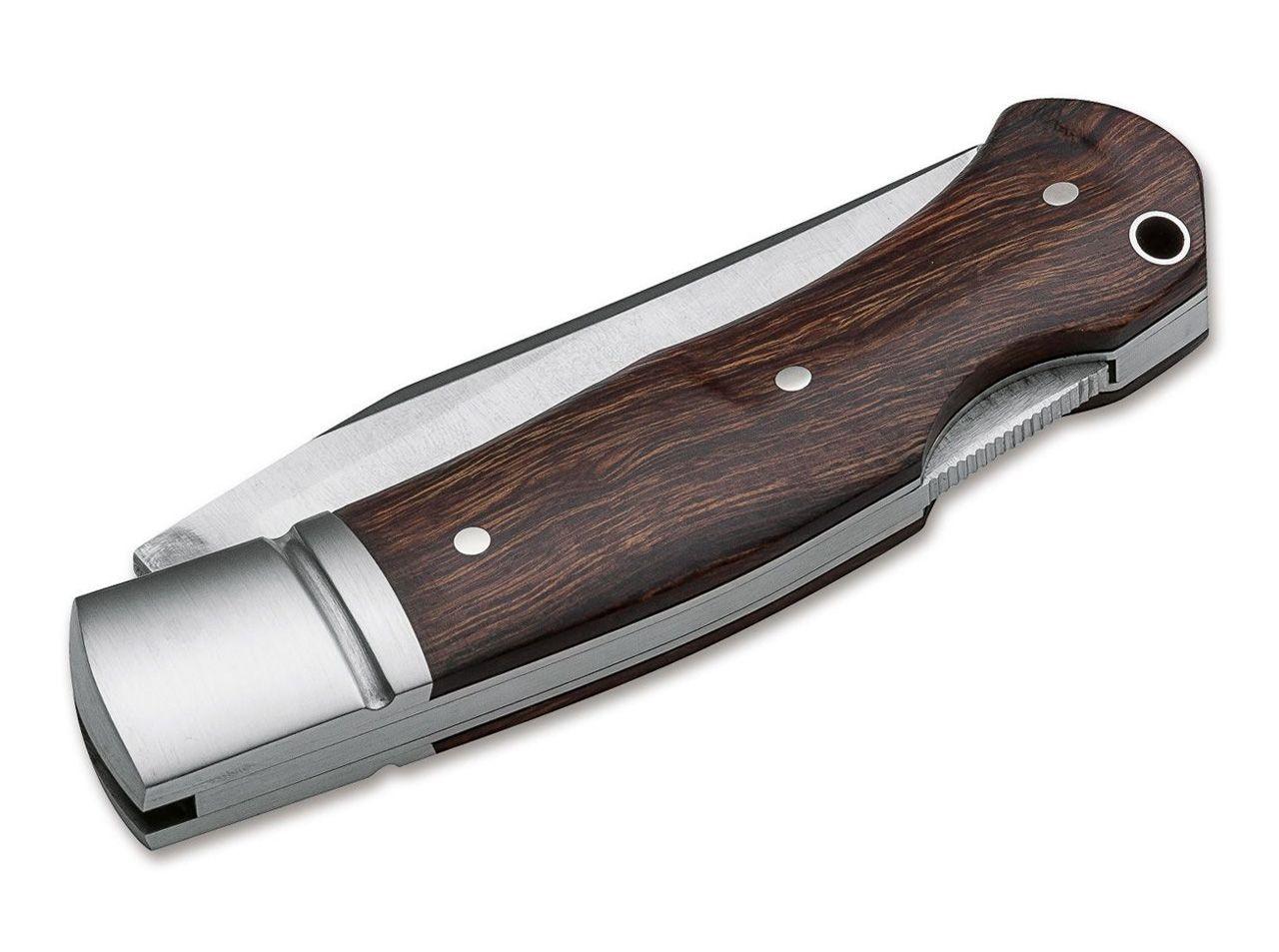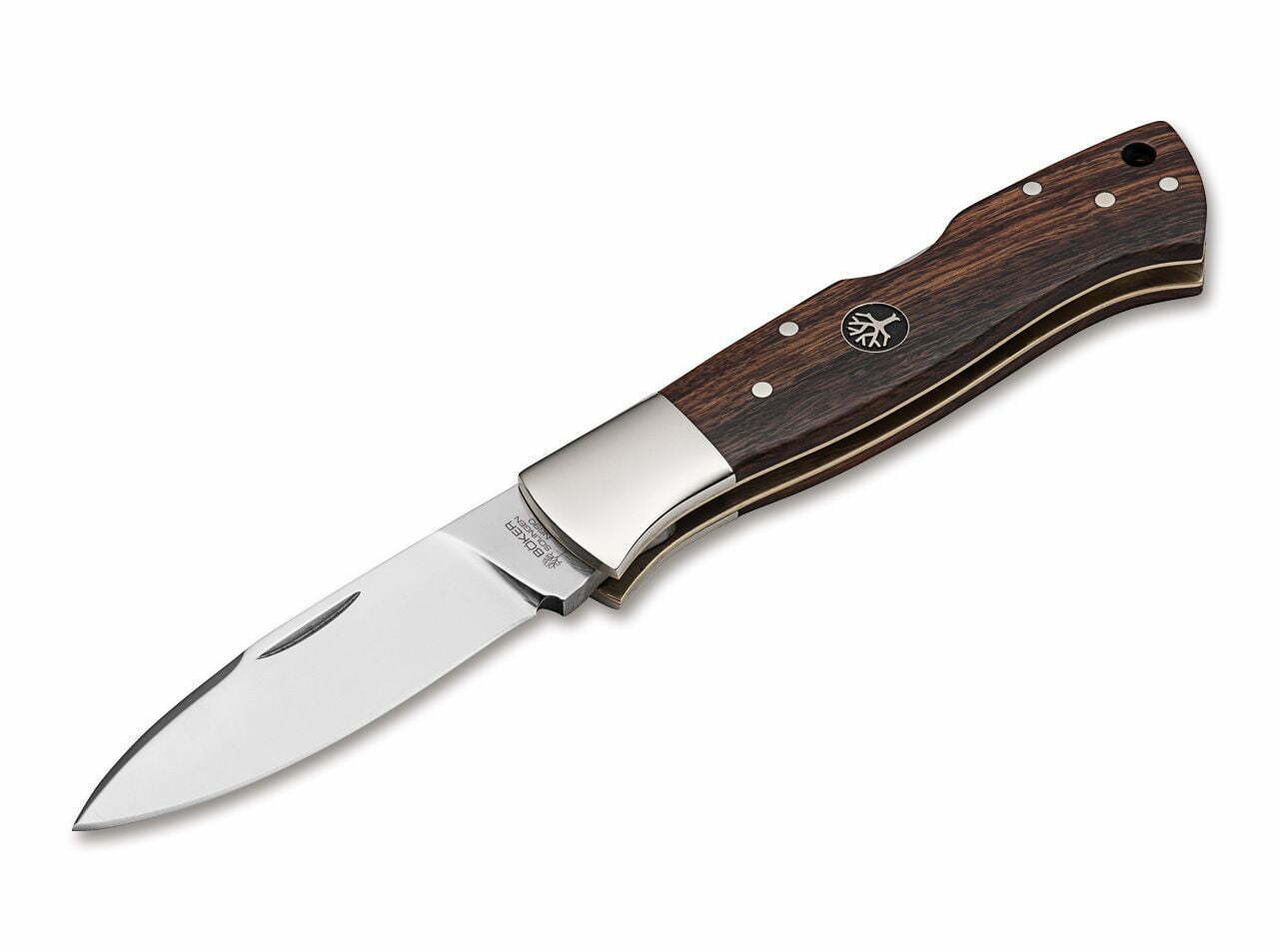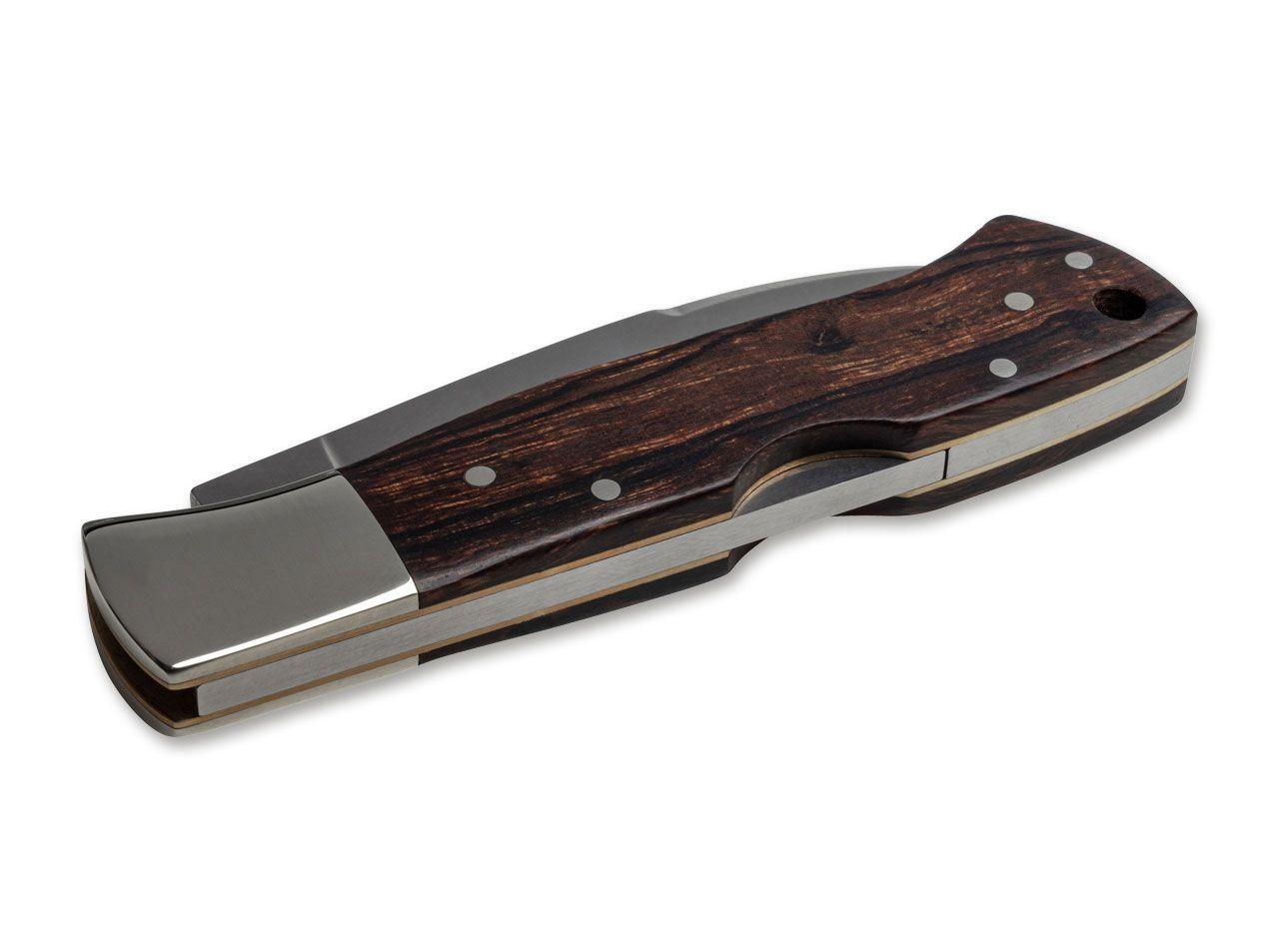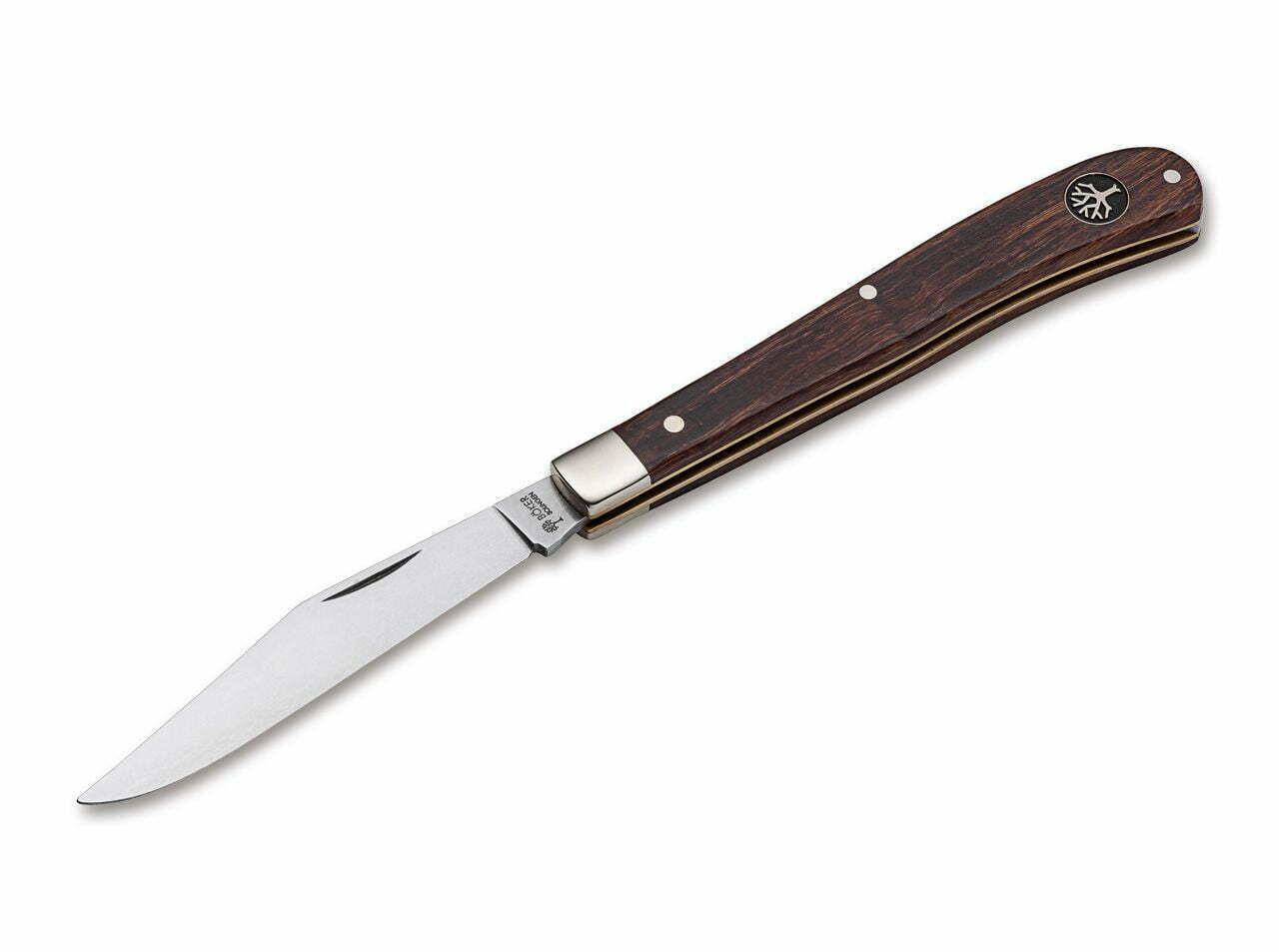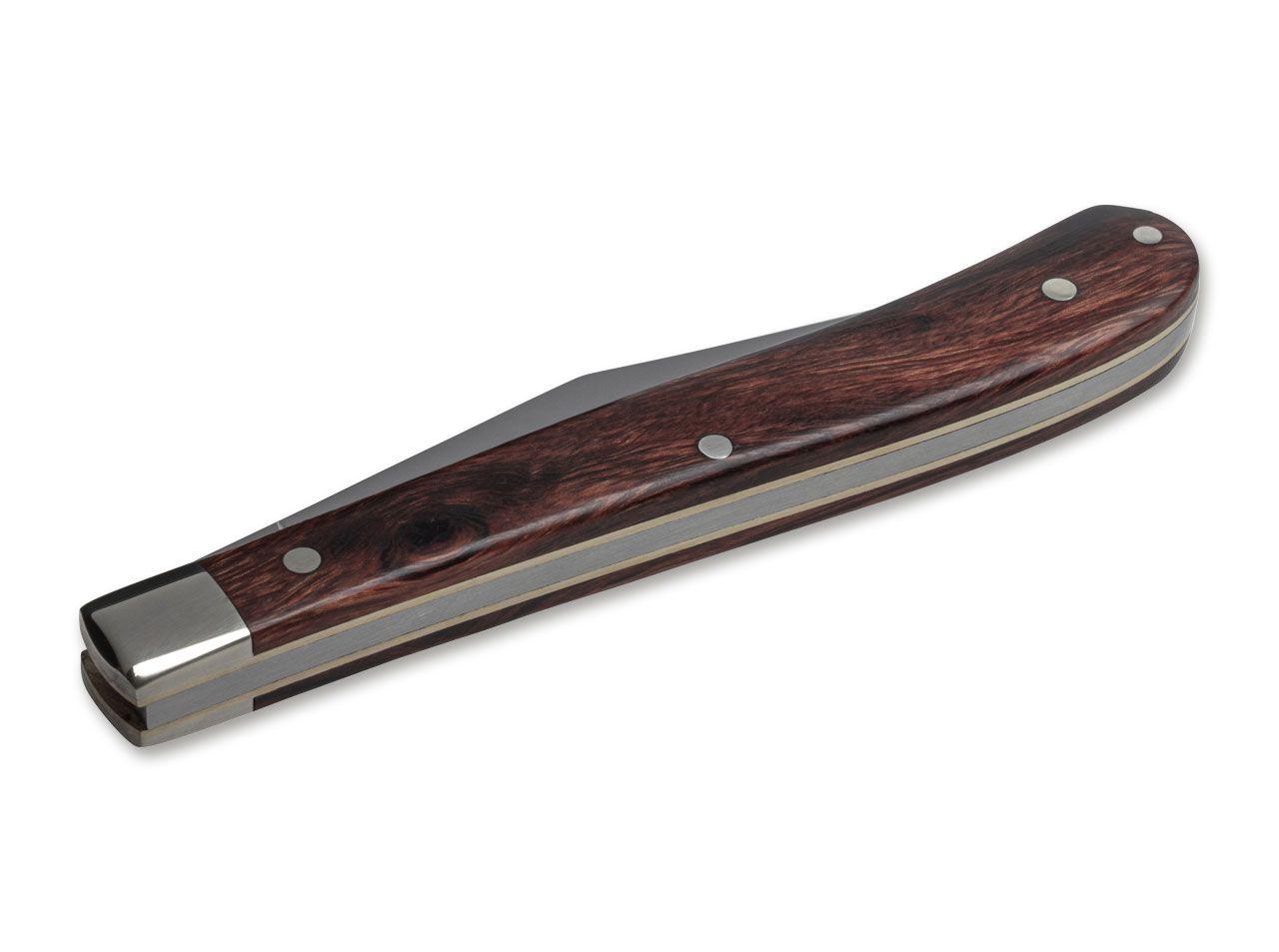Desert ironwood (Olneya tesota) is a type of fine wood used to make handle scales.
Desert ironwood is indigenous to the southwestern United States and the very northwest of Mexico, especially in the Sonora desert. It belongs to the Olneya genus, a member of the papilionaceae family. Desert ironwood grows as a shrub or tree. The plant can grow up to ten meters tall with a trunk diameter of approximately 60 centimeters. The gray bark of younger trees is smooth and develops cracks as the tree ages. Desert ironwood is an evergreen plant that can still cast off its leaves in sustained cold temperatures below 2°C or during a dry spell in order to reduce its water consumption.
Desert ironwood is very sensitive to frost and dies in cold temperatures of less than -9°C. The sapwood of desert ironwood is yellow and unsuitable for the production of handle scales. The heartwood presents a range of colors from delicate grayish brown to a rich dark brown hue. Sometimes, it is almost pure black. The wood has a striking pattern with a mottled or marbled look. Desert ironwood is relatively heavy, very hard and rather tough. Due to these properties is difficult to process but makes up for it by being rather resilient and weatherproof. Therefore, it is the perfect material for handle scales.
The wood can be finished with various wood oils, though it is not very absorbent. Desert ironwood is extremely rare and expensive. To protect the small tree population, only deadwood, i.e. the wood of fallen trees, can be processed legally. Apart from handles scales for knives, desert ironwood is also used for artisanal work such as carvings and inlays.
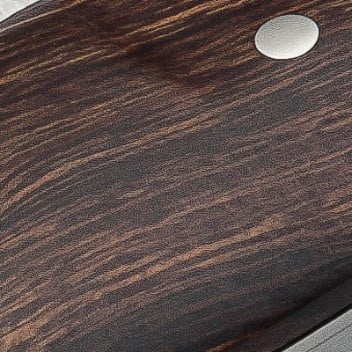
Showing all 13 resultsSorted by popularity
-
Brand: Böker Manufaktur Solingen

-
Brand: Manly Knives


